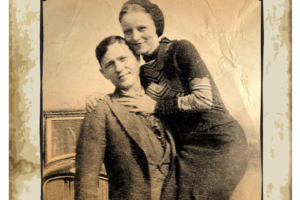Malcolm X: A Legacy of Activism and Empowerment
Introduction
Malcolm X, born Malcolm Little on May 19, 1925, was a prominent civil rights leader and activist who played a crucial role in the fight for racial equality and empowerment in the United States during the mid-20th century. His journey from a troubled youth to a charismatic and influential figure is a testament to the power of transformation and the impact one person can have on a movement. In this article, we will explore the life, ideology, and lasting legacy of Malcolm X.

Early Life and Conversion to Islam
Malcolm X’s early life was marked by adversity and struggle. Born in Omaha, Nebraska, he experienced racial prejudice and discrimination firsthand, witnessing violence and injustice against African Americans. His father, an activist for the Universal Negro Improvement Association (UNIA), and his mother were strong influences in his life. Tragically, his father was killed, and his mother was institutionalized, leaving Malcolm and his siblings to face a challenging childhood.
In his young adult years, Malcolm X engaged in criminal activities, ultimately leading to his incarceration in 1946. During his time in prison, he underwent a significant transformation. He became introduced to the Nation of Islam, a black nationalist and separatist religious movement, and converted to Islam. Malcolm X’s newfound faith became a cornerstone of his life and a driving force for his advocacy for the rights and empowerment of African Americans.
Civil Rights Activism
Upon his release from prison, Malcolm X emerged as a prominent spokesperson for the Nation of Islam. His powerful speeches and unwavering commitment to racial justice inspired many to challenge the systemic racism prevalent in the United States. Malcolm X’s unapologetic approach and emphasis on self-defense and self-respect made him a controversial figure during the civil rights movement.
He advocated for self-sufficiency and self-reliance within the black community, urging individuals to take control of their destiny and challenge oppression. Malcolm X’s messages resonated with a significant portion of the African American population, particularly those who felt disenfranchised and unheard within the mainstream civil rights movement.
Evolving Perspectives
In 1964, Malcolm X made a pilgrimage to Mecca, which profoundly impacted his worldview. He experienced a shift in perspective and embraced a more inclusive and humanitarian approach to civil rights. He started working towards collaboration between different racial and religious groups to address the common issues of inequality and discrimination.
Malcolm X founded the Organization of Afro-American Unity upon his return to the United States, seeking to promote unity among African Americans and work towards their economic and social empowerment. Tragically, he was assassinated on February 21, 1965, before he could fully realize his evolving vision of unity and inclusiveness.
Legacy
Malcolm X’s legacy continues to influence movements for social justice, racial equality, and empowerment. His passionate advocacy for black pride, self-determination, and resistance against oppression resonates with many to this day. The civil rights movement owes much to Malcolm X, who challenged conventional norms and called for direct action against the entrenched racial prejudice of his time.
Conclusion
Malcolm X remains a symbol of determination, resilience, and the ability to transform one’s life despite challenging circumstances. His unwavering dedication to the cause of racial equality and empowerment continues to inspire generations of activists and advocates striving to create a more just and equitable society. Malcolm X’s story is a reminder that through education, empathy, and the courage to challenge the status quo, we can effect positive change and leave an indelible mark on the world.
Share via:



